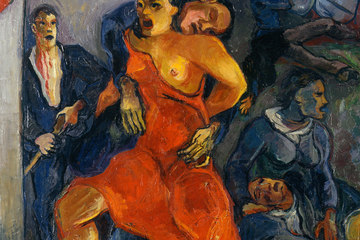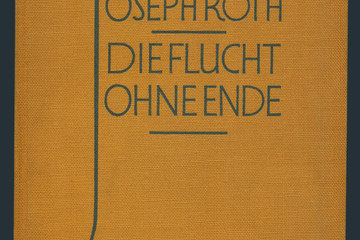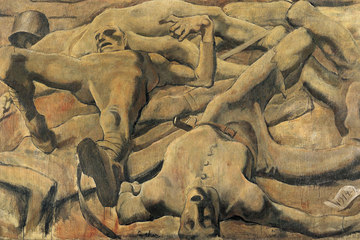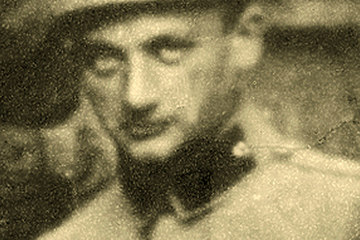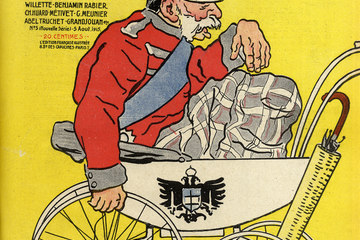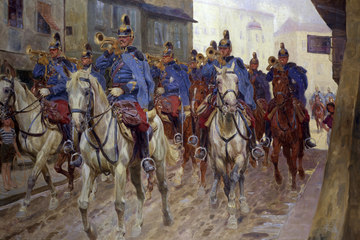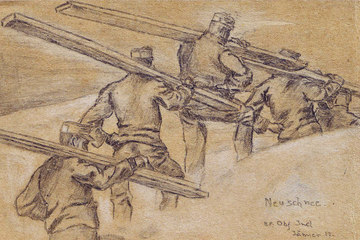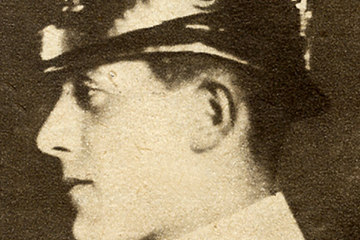Monika Szczepaniak
‘A New Race of Men’? – Ideologies of Masculinity in Post-War Austria
In post-war Austria military masculinity became a resource that was in dispute. After the end of Austria-Hungary most of the army’s professional officers flocked to Vienna, where they made clear their overwhelmingly anti-republican stance and wanted to ensure the continued existence of a military formation. In the wake of defeat they felt that their honour had been insulted, especially as society reacted with a public ‘castration’ of masculinity.
‘The Flight Without End’? – The Warrior’s Homecoming
Five years after the war the Austrian writer Joseph Roth depicted the conditions and mechanisms needed to restore soldierly masculinity.
‘Black Decay’ – Soldiers as Victims
In Austrian literature the devastating effects of the war on individual men and on the condition of military masculinity are major themes. Writers confront the aspect of war as a merciless ‘engineer’ who mows down men or turns them into invalids.
Melancholy Men in Uniform – How Masculinity Becomes a Problem
In his novel Die Kapuzinergruft (The Capuchins’ Crypt, published in English as The Emperor’s Tomb) (1938) Joseph Roth formulates a literary diagnosis of the superficial and foolish profile of soldiers from Vienna, the city of the waltz: ‘They were all too spoiled in Vienna, this city fed incessantly by the crown lands of the Monarchy, these harmless, almost ridiculously harmless, children of the capital and imperial residence, pampered and sung about much too often.’
Forms of Masculinity – Hierarchies, Rivals, Competitors
In the First World War the unique multinational concept underlying the Habsburg Monarchy’s army, according to which the different ethnicities were committed to the emperor and the idea of a common ‘fatherland’, led to different forms of military masculinity determined by region, faith and social background.
The War as a ‘Technoromantic Adventure’
Karl Kraus has given an apt summary of the way in which mechanized warfare provided new conditions for the demonstration of heroic forms of behaviour and the loss of manly and militaristic attitudes. He describes the First World War as a ‘technoromantic adventure’, in which courage has become entangled with technology and confrontations on the basis of muscle power have become obsolete.
‘Warriors on the Frozen Front’ – The War in the Alps as a Test of Manly Strengths
In the Austrians’ culture of memory in the post-war years the war in the Alps played a special role. The ‘steeled’ men battling against nature and the enemy appear as ‘martyr heroes’ and exemplary figures in a process of making sense of what had happened which attributes heroic traits, mythical qualities and symbolic capital to the soldiers of the Austro-Hungarian army despite their having been defeated. The ‘sons of the Alps’ – mountain warriors and Tyrolean militiamen who were exposed to indescribable hardships amid the rocks and snow of the Alpine front and had stood the test very well – corresponded particularly well to the ideal of tough military masculinity.
Dreamers Who Turn into Heroes
Austrian literature on the First World War has strands which are in favour of war and heroics, but it also makes repeated references to the culture of the lower orders with its enjoyment of the pleasures of life, the theatrical playfulness and gentleness of the Austrians and the artistic mentality of the dreamers from – to quote the writer Anton Wildgans – ‘the people of dancers and of fiddlers’, who become heroes ‘when it is necessary’.


